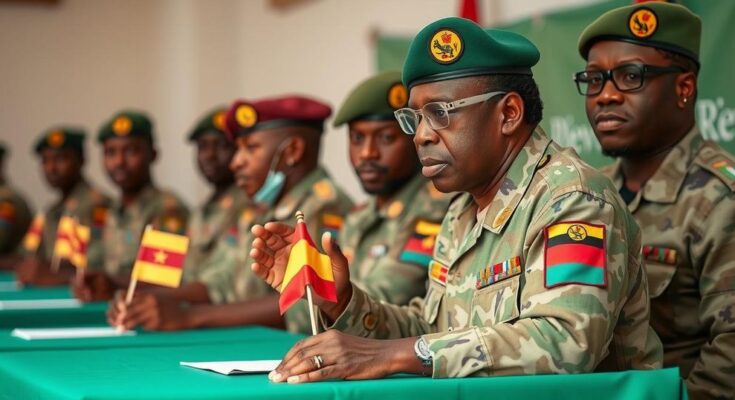Chad voted in a general election amidst military rule, facing a significant opposition boycott. Official turnout was low at 38%, despite claims of record participation among the military. Calls for change echo among voters, while allegations of electoral fraud loom.
Chad held its general election on Sunday, a crucial step towards transitioning from military rule according to government officials. However, turnout was expected to be low, as opposition groups organized a boycott, citing pre-determined election results. Midday reports indicated a turnout of only 38 percent, driven largely by public disillusionment.
In regions traditionally supporting the ruling elite, election officials attributed this voter apathy to cold weather, but opposition leader Succes Masra claimed this was emblematic of broader discontent. He stated, “They have all stayed at home following our call, that is, the overwhelming majority,” indicating that the boycott resonated with many known voters. This scenario may predominantly benefit candidates loyal to President Mahamat Idriss Deby Itno, who rose to power in 2021 and previously faced accusations of electoral fraud in a subsequent presidential election.
President Deby publicly urged citizens to engage in the voting process, as seen in his social media posts where he described the day as historic, sharing images of himself exercising his right to vote. In contrast, the opposition criticized the electoral integrity, with Masra suggesting that fabricated results were predetermined and thus rendered voting efforts futile. For instance, resident Herve Natouingan expressed his views on voter engagement as pointless, underscoring a pervasive belief in systemic issues within Chadian politics.
Despite the bleak turnout expectations, the election management agency reported significant participation among military personnel and nomadic communities. These groups voted early, with official claims revealing 72 percent turnout among soldiers and 54 percent among nomads, stressing the importance of local issues in these elections, such as improving living conditions amidst climatic challenges.
The electoral process has taken place with international observers monitoring the integrity of voting, though allegations of ballot misconduct have emerged. The Democratic Party of the Chadian People reported concerning incidents of missing ballots, calling for heightened vigilance against potential electoral fraud. This election occurs amid persistent security challenges, including threats from the jihadist group Boko Haram and geopolitical tensions with neighboring Sudan and France, complicating Chad’s path towards democratic governance following decades of authoritarian rule.
The political landscape in Chad has been tumultuous, particularly following the military coup that installed President Mahamat Idriss Deby Itno in 2021 following the death of his father, who had a long-standing hold on power for thirty years. This election was framed as a pivotal moment in the transition to democracy, as Chad aimed to stabilize its governance after years of military rule and ongoing conflicts within the region, including interference in Sudan’s crises and local insurgency threats. However, widespread disaffection among voters, incited by a lack of trust in the electoral process and calls for a boycott by the opposition, added to the complexity of this significant electoral moment.
In conclusion, Chad’s recent general election reflects deep-seated political challenges, characterized by public disillusionment and a significant boycott by opposition groups. Despite the government’s optimism regarding the election’s role in facilitating a transition to democracy, low turnout and allegations of pre-determined outcomes underscore the difficulties the nation faces in restoring public trust and ensuring a legitimate electoral process. The calls for improvements in governance resonate strongly among voters, distinguishing local needs amid national chaos.
Original Source: www.hudsonvalley360.com




